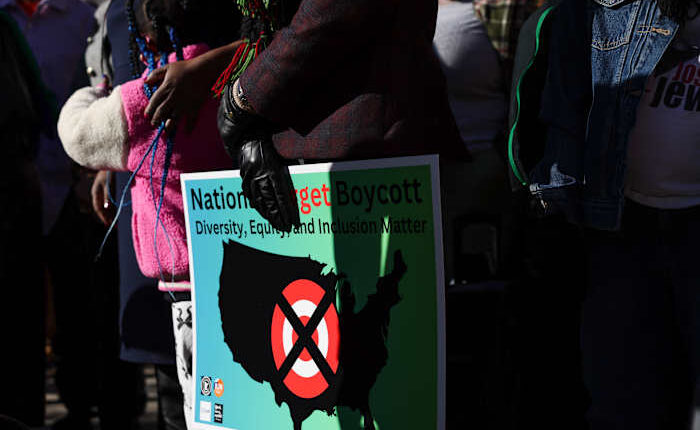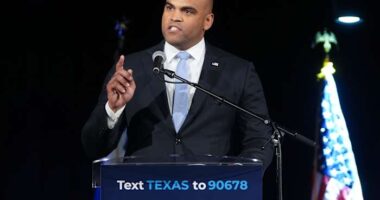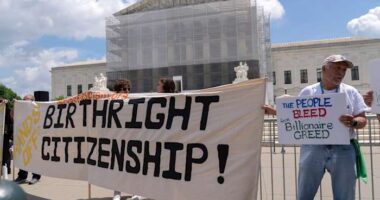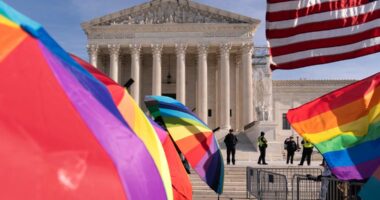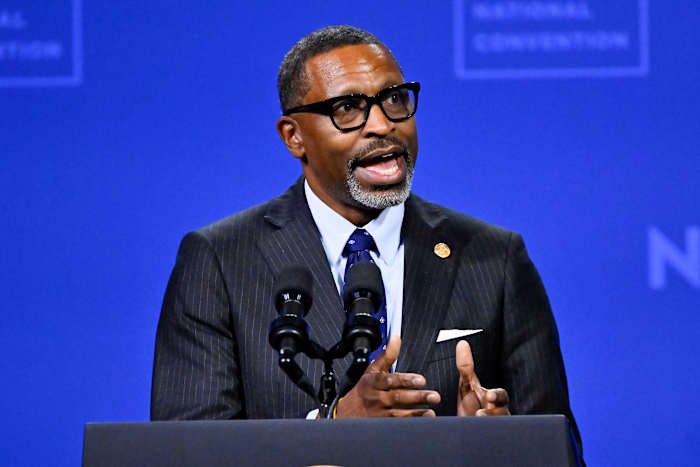
The NAACP is encouraging Black Americans to support companies that remain committed to diversity, equity, and inclusion efforts despite conservative opposition. The organization is highlighting which brands have maintained or backtracked on their previous commitments in this regard.
According to the NAACP, this spending guide is essential because diversity, equity, and inclusion programs play a crucial role in advancing social and economic opportunities for Black Americans. By 2030, Black consumers are expected to contribute around $2 trillion to the economy, as projected by the McKinsey Institute for Black Economic Mobility.
NAACP President Derrick Johnson emphasized the importance of embracing diversity for businesses, stating that it not only fosters a more inclusive society but also leads to financial benefits. He warned that in a rapidly evolving global economy, companies that resist multicultural consumerism will be left behind.
Keisha Bross, an economic strategist at the NAACP, says they are not calling for a “boycott” of companies but instead encourage consumers to “buy-in” on companies that back their values. People of all backgrounds are encouraged to use the guidelines.
The NAACP is speaking with executives at companies named in the advisory, including Amazon, McDonald’s, Target, Lowe’s, Tractor Supply and Walmart, and will update its guidance as companies roll back or reaffirm commitments to DEI.
The Black Consumer Advisory critiques major American retailers including Lowe’s, Target and Walmart for ending DEI policies while praising Costco for standing by previous commitments. Apple, Ben & Jerry’s, Delta Airlines, e.l.f. Cosmetics and JPMorgan Chase & Co are all also lauded for standing by DEI practices while McDonald’s is condemned for a policy reversal. The advisory also calls out reversals from major tech firms like Amazon and Meta.
The advisory looks at which companies are backtracking on prior commitments, including by eliminating diversity officer positions, ending hiring practices meant to boost staff diversity or supplier diversity standards, or reducing investments in Black communities like support for historically Black colleges and universities.
The study by McKinsey found that Black Americans are also more likely to live in communities that lack access to the goods and services of major companies.
“I am confident that this framework will support our community as we make difficult decisions on where to spend our hard-earned money,” Johnson said. “If corporations want our dollars, they better be ready to do the right thing.”
The effort comes as corporations, governments and other major institutions face pressure to roll back DEI policies amid a backlash from the Trump administration and Republican-led state governments.
Soon after taking office, President Donald Trump signed an executive order directing federal agencies to end “illegal preferences and discrimination” in government and instructed federal agencies to find ways alongside the Justice Department to “encourage the private sector to end illegal discrimination and preferences, including DEI.”
DEI policies are a catchall term for programs meant to promote fair treatment, impartial hiring and cooperation between people from different backgrounds. Such policies vary wildly between companies, universities and governments but often include anti-discrimination mandates and training meant to inform people about how to promote inclusive values. Some institutions hire staff who focus on implementing DEI policies.
Trump’s orders have already faced their own pushback. In February, a group that included the mayor of Baltimore and an association representing university professors sued the Trump administration over the orders, claiming that the directives violated civil rights law.
“In his crusade to erase diversity, equity, inclusion, and accessibility from our country, President Trump cannot usurp Congress’s exclusive power of the purse, nor can he silence those who disagree with him by threatening them with the loss of federal funds and other enforcement actions,” the plaintiffs in the lawsuit wrote.
More litigation surrounding DEI in the private sector is pending. The Federal Communications Commission recently sued Comcast over its DEI policies. And the state of Missouri in February filed a lawsuit against Starbucks over its DEI policies. Companies including Apple, Berkshire Hathaway, Coca-Cola, IBM, Mastercard and Pepsico face shareholder resolutions challenging their DEI practices.
Copyright 2025 The Associated Press. All rights reserved. This material may not be published, broadcast, rewritten or redistributed without permission.
